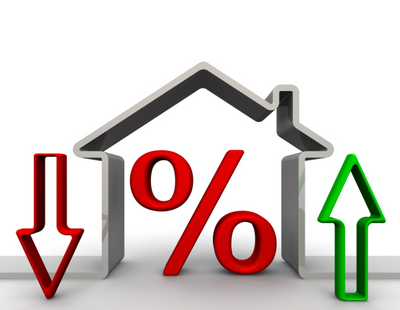House prices will still come under pressure despite a better-than-expected economic outlook, Knight Frank claims.
New analysis from the property brand claims that the fact a recession may well be averted and inflation forecasts also fell in last week’s Budget will only boost sentiment among buyers and sellers.
Its head of UK residential research Tom Bill highlighted that while five-year fixed-rate mortgages are at around 4% now compared with 2% this time last year, “the key is the overall sense of stability that has returned.”
He said: “Any rate changes this year will pale into insignificance compared to what took place following the mini-Budget.
“If anything, the pressure on rates is downwards as lenders become more competitive in a lower-volume market.”
Bill predicted that if central bankers adopt a less strident approach to higher rates following the collapse of Silicon Valley Bank this month, the downwards pressure will intensify.
He said: “The swap market is certainly pricing in a change of tack, with rates falling after the demise of the California-based lender was attributed to aggressive monetary tightening.
“In short, a solid start to the year for the UK housing market has been enhanced by an economic backdrop that has become more favourable over the past 10 days.”
However, he warned that none of this means house prices won’t come under pressure.
Bill said: “There will be a sharp intake of breath among more homeowners as their fixed-rate deals come to an end and more distress will inevitably enter the system, though lenders will be keen to avoid fire sales.
“The other reason prices will come under pressure is higher supply, which hasn’t been a feature of the market since before the pandemic.
Demand has been insatiable and supply tight for the last three years, particularly during the stamp duty holiday. It’s easy to forget that as choice increases, prices may well soften.”
The number of market valuation appraisals in the UK, a leading indicator of supply, was 16.4% above the five-year average in February, Knight Frank data shows.
Meanwhile, the number of new prospective buyers was 11% higher, suggesting supply outpaced demand last month.
Bill added that some sections of the market will suffer more than others.
He said: “First-time buyers, who typically have the lowest levels of equity, will be squeezed hardest by higher rates. Demand for a four-bed house may be stronger than a two-bed house on the same street.
“Some of them will become tenants, adding to the imbalance that has caused double-digit rental value growth over the last 18 months.”
He added: “With a general election creeping onto the radar, politics will be in the ascendancy this year, which could be bad news for both landlords and tenants.
“There will be a lot more at stake in the next Budget.”











(3).jpg)




.png)


.png)




Join the conversation
Be the first to comment (please use the comment box below)
Please login to comment